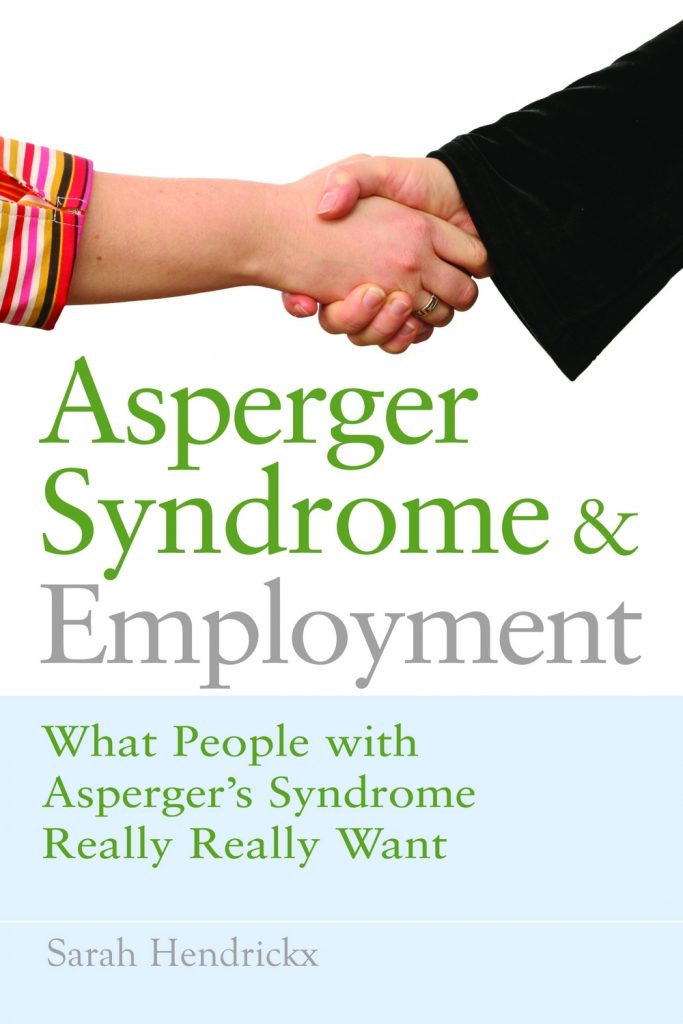As you might already know, we’re marking Autism Awareness Month throughout April by sharing a series of blog posts on books by, for, and about autistic adults. Featuring personal stories from those with Asperger’s Syndrome, Sarah Hendrickx’s book, Asperger Syndrome & Employment highlights successful scenarios and provides suggestions for employers and those in search of work. This extract looks at key criteria which can be helpful to think about.
Is there any such thing as the perfect job? Or is this an oxymoron? A suitable job is one which allows best use of specific skills and minimises the areas of weakness. Lone working, excellent factual memory, logical analysis and problem-solving are likely strengths for someone with AS. Jobs which have been suggested to be more suitable for those with AS include:
 postman – lone working, lack of pressure, involves exercise
postman – lone working, lack of pressure, involves exercise- gardener – lone working, lack of pressure, physical work (can be relaxing)
- IT technician – lone working, technical precision required, problem solving
- software engineer – problem solving, working to precise specifications
- photographer – creative, lone working, using technical skills
- researcher – analytical, focused, detail-driven
- accountant – proficiency with numbers, accuracy
- librarian – system focused, excellent factual memory
- piano tuner – perfect pitch, lack of pressure, lone working, specialist interest
Considering what factors your perfect job would comprise is an excellent way to work backwards from the required outcome (the ideal job) to look for work that would suit you and that might be available. Start with working out what you want and find something that fits, or almost fits, rather than seeing what there is and making the best of it. It’s good to have in mind what you would like to do; it gives a greater sense of control, rather than having to put up with whatever you can find. This may be the reality right now, but it doesn’t stop you making plans towards a more equitable situation in the future.
Make a list of all the ‘essential’ and ‘desirable’ criteria for your desired job. Start with what you love doing the most; your interests and hobbies. This may not be something that can earn you money, but there may be aspects of this that could form part of your daily work. Creative imagination is required to see the bigger picture and all possibilities. Enlist help for this if this feels difficult. The following questions may help you to define this job as much as you can. (This is looked at again in Chapter 5: Logistics – Finding a Job.) There are likely to be many other considerations to take into account:
- What do you enjoy doing most?
- How many hours would you be able to work?
- How far away from home could you travel?
- Do you want to work outdoors or indoors?
- Do you want to work in an office environment or in production?
- What physical/sensory factors would you need to consider (noise, lighting, etc.)?
- How much do you need to earn? Work out how much it costs you to live.
- What type of tasks would you want to be doing?
- Are you happy meeting new people, speaking at meetings and using the telephone?
- What qualifications would you need to obtain to be able to do this job? If you don’t have the qualifications, how could you persuade a company that you can do the job?
- Would you be willing to study in your spare time to gain qualifications?
- Would you prefer to work alone or as part of a team?
- Would you want to be responsible for staff?
- What support would you need – writing a CV, telephoning the company for an application form, attending an interview, on-the-job support?

Respondents were asked to describe their perfect job, if they had the option to design such a thing. Naturally some found this difficult to do, given that it is an abstract concept and therefore not typically an AS strength, but most attempted it nevertheless. Some described their ideal job at great length, showing great imagination for an abstract concept. Factors such as control, limited contact with people and flexible working hours were mentioned by more than one respondent. Working part time may be a serious option for some with AS who find the draining demands of the workplace too exhausting for a full working week. This provides a clue that either full-time work or unemployment should not be seen as the only (all-or-nothing) alternatives available. For some, there seemed to be a sense of regret that they had not had the opportunity to fulfil their career dreams, and this was acknowledged as being due to a lack of support in earlier life. The interesting factor here, as in the answers to other questions, was the extent of self-awareness shown – people know exactly what they need. For those supporting people with AS into employment, it is important to ask your clients what they need, for they, above anyone else, will know their capabilities and limitations.
- If you would like to know more about Asperger Syndrome & Employment, you can find it HERE.
- If you would like to browse a selection of our books for autistic adults, you can do so HERE.
- If you would like to read more articles like this and get the latest news and offers on our books about autism, why not join our mailing list? We can send information by email or post as you prefer. You may also be interested in liking our Autism, Asperger’s and related conditions Facebook page.
One thought